Power Chords Review
⌨️
In the middle of the pandemic, I sublet a corner of a musty, beer can-filled jam space to practice drumming. The unit behind me was regulars in a corny speed metal band who never played on time for more than half an hour and were often too drunk to finish a practice session. When the lead guitarist was taking a break from arguing with his girlfriend on the balcony, he would pass me in the hall, begging for cocaine while playing Motörhead on the phone speaker. Power Chord is a lot like that band.
need to know
What is it? Rogue-lite Heavy Metal Deck Builder
Expect to pay: $20 / £16.75
release date: January 26, 2023
Developer: big blue bubble
Publisher: big blue bubble
commented on: Windows 10, Ryzen R7 5700g, 16gb DDR4 memory, Radeon RX 5700
multiplayer game? No
Association: Steam Page(opens in a new tab)
Power Chord’s deck-based combat centers around its roster, with each member of your band offering a unique way to deal or negate double-digit damage numbers. Despite his dizzying name, I really like Grimnir Brawlfist, a lead guitarist who plays deadly riffs based on his own build-up of rage when he takes damage, which can be overshadowed by a series of drummers. Offset by Barrier and Armor abilities. The vocalist and bassist positions fill the support and healing positions, respectively, giving the band (and each hand) a healthy dose of variety.
Each battle usually randomly distributes a card or cash to buy (or destroy) a card. The interplay between the cards in the deck is what makes Power Chord really interesting, and the best cards have some sort of built-in challenge or secondary ability. “Sunder” does a quick and dirty 7 damage, an enemy finishing number that usually takes a few early game rounds to build up, but gives allies a free handicap when it’s used to break through an enemy’s shield .
Most critical to my success is the Grimnir card, which can further increase rage stacks by playing a stance card that generates more rage at the cost of taking more damage. Power Chord limits you to only a few cards per turn, and that limitation shines when it feels like you and your enemy are playing two turns before each other. I just wish it was clearer what happened on the turn I’d already played.
If you’ve spent weeks in games like Slay the Spire or Monster Train, the basic mechanics of Power Chords may look familiar, but without a master’s degree in deck builders I’m often miscommunicated Overwhelmed by stacks and debuffs. It’s hard to tell where the damage is coming from, or why some attacks come close to one-hit knockdowns while others aren’t.
Much of this comes down to enemy variety (or lack thereof). The demonic bands posted on the other side of the stage are often made up of a dizzying array of subspecies, each with specific abilities and bonuses that can greatly affect the course of a battle. With only four distinct silhouettes between them (and some confusing instrumental overlap), I found myself barely able to parse the enemy roster, and I was constantly scratching my head wondering how and why I was taking so much damage . Still, it’s satisfying to pinpoint the band’s weakest link and unleash a decapitation attack to blunt their damage output.
1 of 5 images
(Image credit: Big Blue Bubble) (Image credit: Big Blue Bubble) (Image credit: Big Blue Bubble) (Image credit: Big Blue Bubble) (Image credit: Big Blue Bubble)
One of the missing notes of Power Chord is its theme, with its frustratingly shallow musical style, an arrhythmic “I go you go” turn-based card sling atop some bargain punk/metal/sludge instrumentation . It’s all on topic enough, but since runs often last well over 45 minutes, I quickly find myself wanting to hear something, anything else. It’s a barebones visual affair, and I doubt it will win over anyone who sincerely likes metal music, with battles taking place only on a single, unchanging concert stage – even the most exhausting of tours The gig band also knows to mix lights here and there.
I also didn’t fully trust any of the bandmates I had on my shoulders, despite digging their cards. Too Much is a derivative fusion of album art tropes, and they spend more time attacking with weapons than playing music. Drummer, for example, the only “Thunder Knight” (duh) looks like a 40K starfighter with two giant clubs. None of his attack animations match the ones on the cards – he swings his twin sticks once when playing the “one and two” card.
I admit I’m not a metal fan, but it’s a very rich genre, and it’s hard to play, let alone play. Seeing that none of this is seriously reflected in the game is just one way of pervading Power Chord with a general sense of “missed opportunity”—going back to the type of aesthetic that Metalocalypse ridiculed back in 2006 felt cheap.
1 of 5 images
(Image credit: Big Blue Bubble) (Image credit: Big Blue Bubble) (Image credit: Big Blue Bubble) (Image credit: Big Blue Bubble) (Image credit: Big Blue Bubble)
Power Chord’s card battles are strung together by a roguelite progression system, a simple dotted map with random encounters between pit stops to heal or equip. Since I can’t clearly see where the damage is coming from during a fight, I never found myself weighing the risks and rewards of these route choices, and it’s usually most strategic to head straight for the healing station. There’s a wide variety of unlockable gear (expect collars and band shirts) with powerful enough rewards, like a free shuffle or the ability to play one-off cards twice, so running doesn’t feel too similar. It’s all very light and never intrusive but doesn’t really add any grip either.
The Power Chord’s research is enough to disappoint a mechanical skeleton with its anemic commitment to the drill. It never fully embraces the genre it borrows from in a meaningful or sincere way, only using it as a cheap theme. Add to that combat that oscillates between satisfying, frustrating, and incomprehensible, and Power Chord is dated and out of tune.
Find more articles in our categories Gaming & News ou encore Anime.
Thanks for visiting we hope our article Power Chords Review
, help us and share the article on Facebook, twitter and e-mail with the hashtag ☑️ #Power #Chords #Review ☑️!

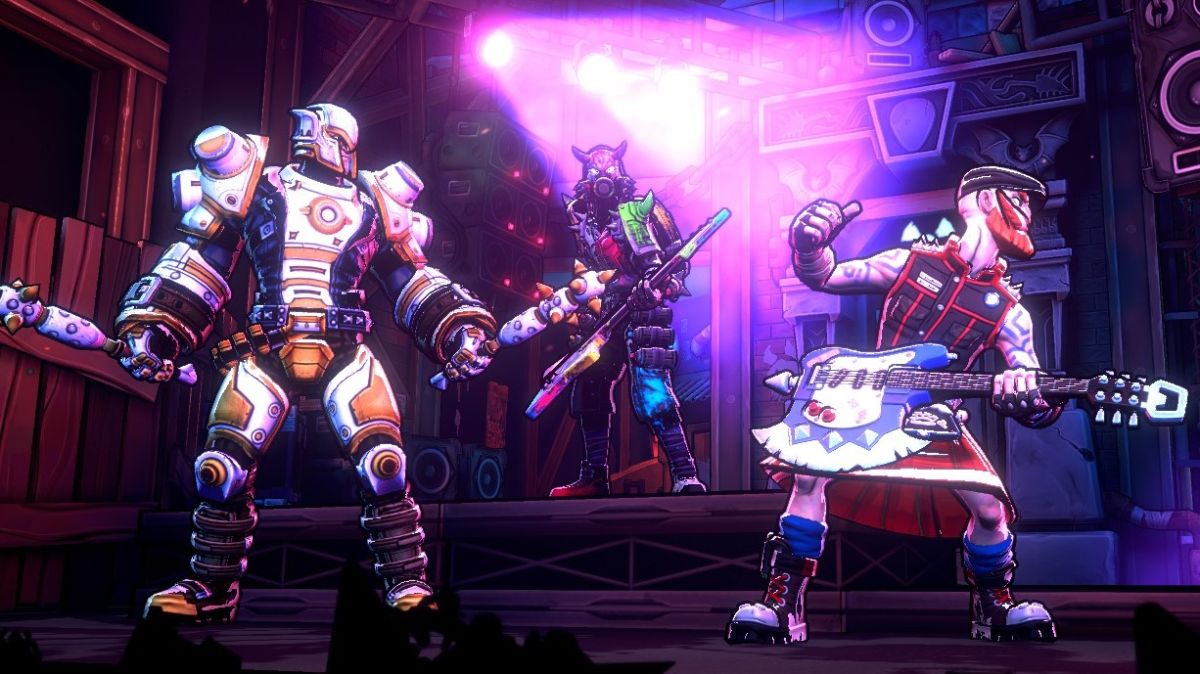
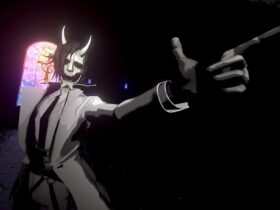
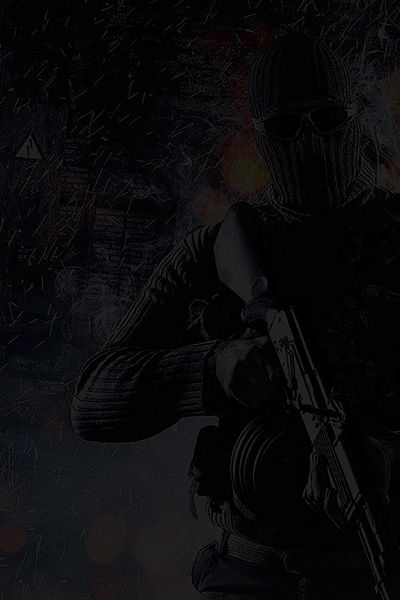
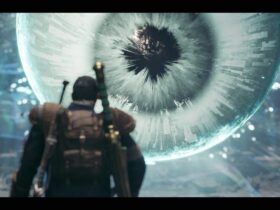
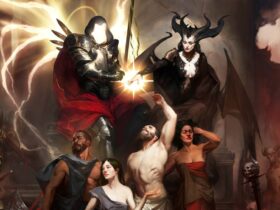

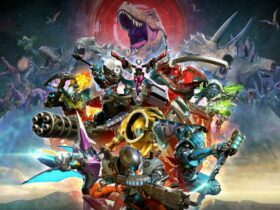

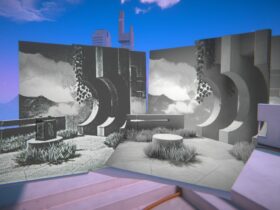
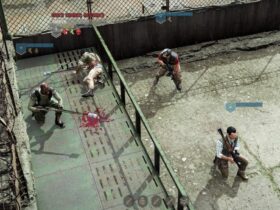

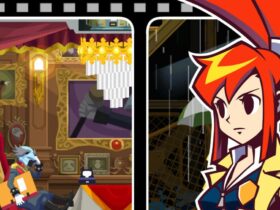

Leave a Review